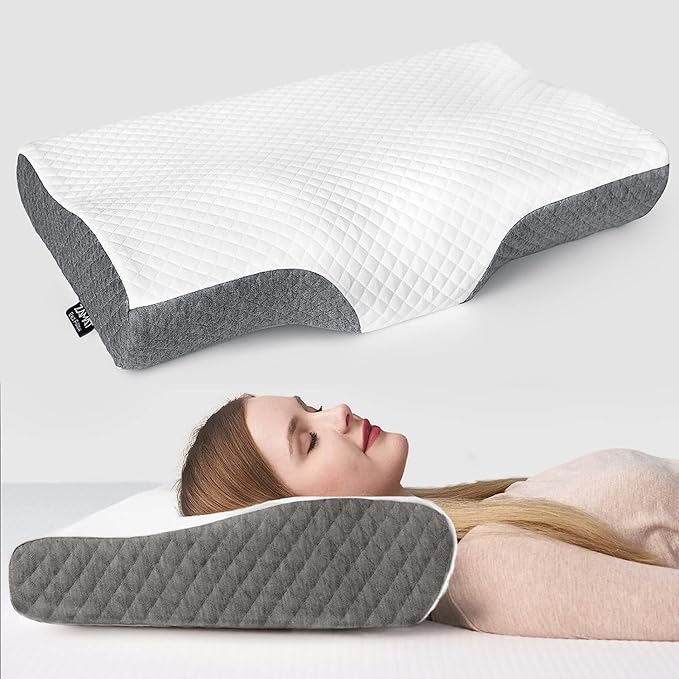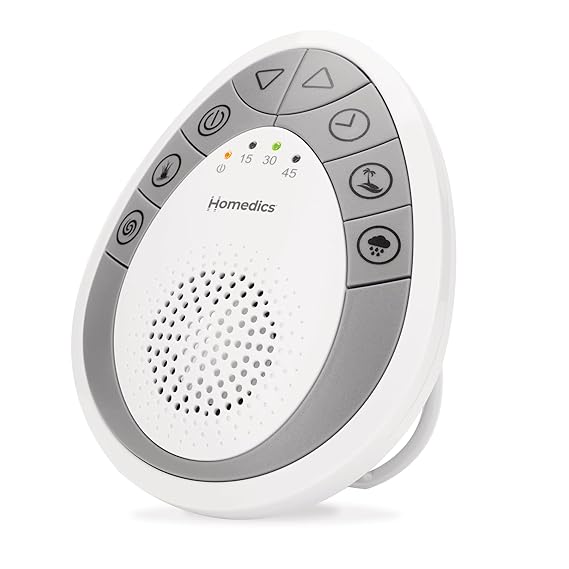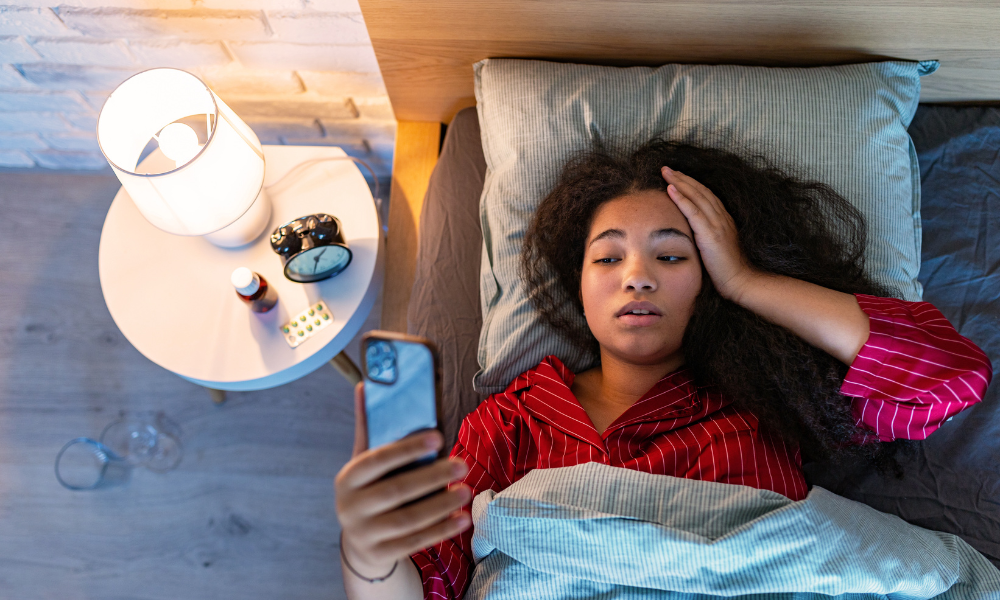The Science of Sleep: How to Get Better Rest Tonight
Sleep is one of the most powerful, natural tools our body has for healing, recovery, and overall well-being. Yet, in today’s fast-paced world, millions of people struggle with poor sleep quality, insomnia, or irregular sleep cycles. If you’ve ever tossed and turned in bed or woken up feeling more tired than when you went to sleep, you’re not alone.
In this article, we’ll dive into the science of sleep—why it’s essential, how it works, and practical steps you can take tonight to get better rest.
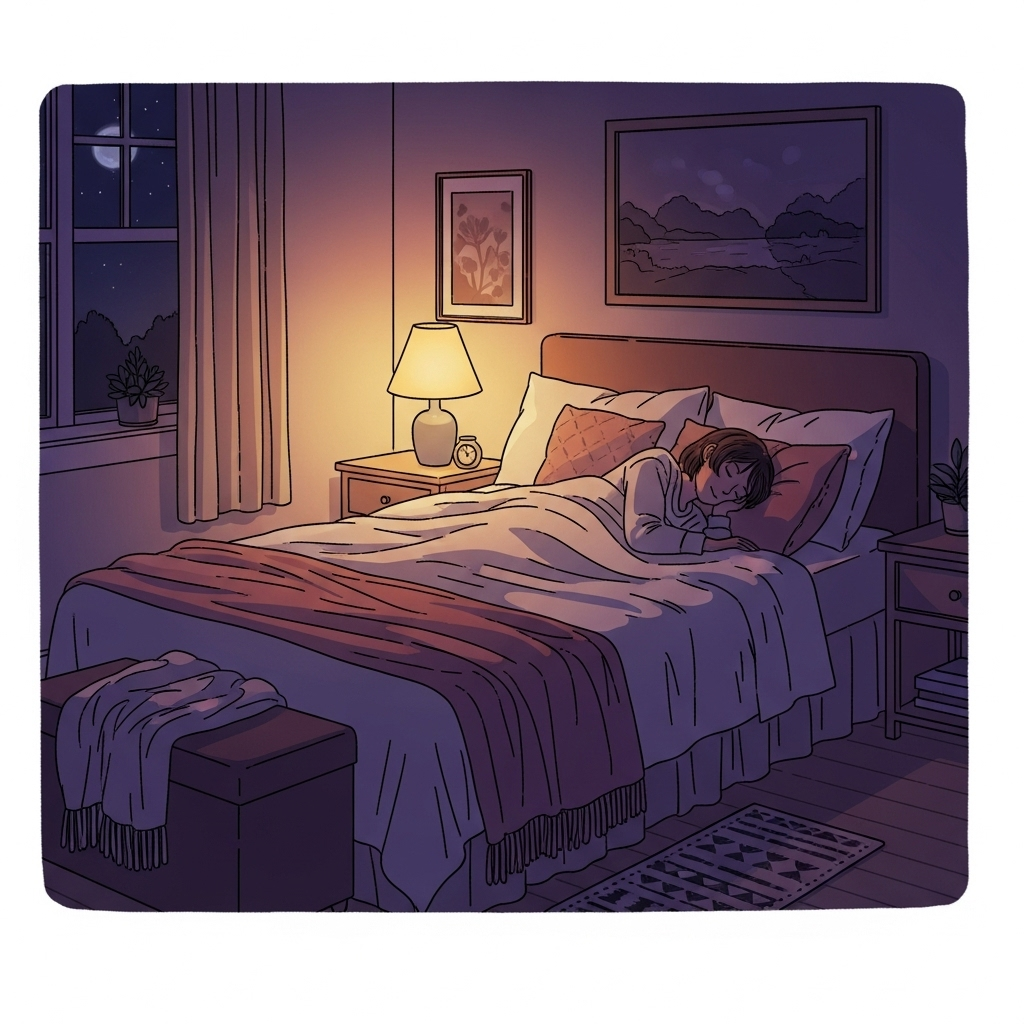
Why Sleep Matters
Sleep is not just about resting the body—it’s an active process where the brain and body perform vital maintenance functions. Here’s why it’s so important:
- Physical Health:Sleep allows the body to repair tissues, build muscle, and regulate hormones. Poor sleep is linked to obesity, heart disease, and diabetes.
- Mental Health: Your brain detoxes, reorganizes memories, and processes emotions as you sleep. Lack of rest increases the risk of anxiety and depression.
- Performance & Focus: Quality sleep improves problem-solving, creativity, and productivity. Just one sleepless night can impair reaction times as much as being legally drunk.
Sleep isn’t optional—it’s a biological necessity.
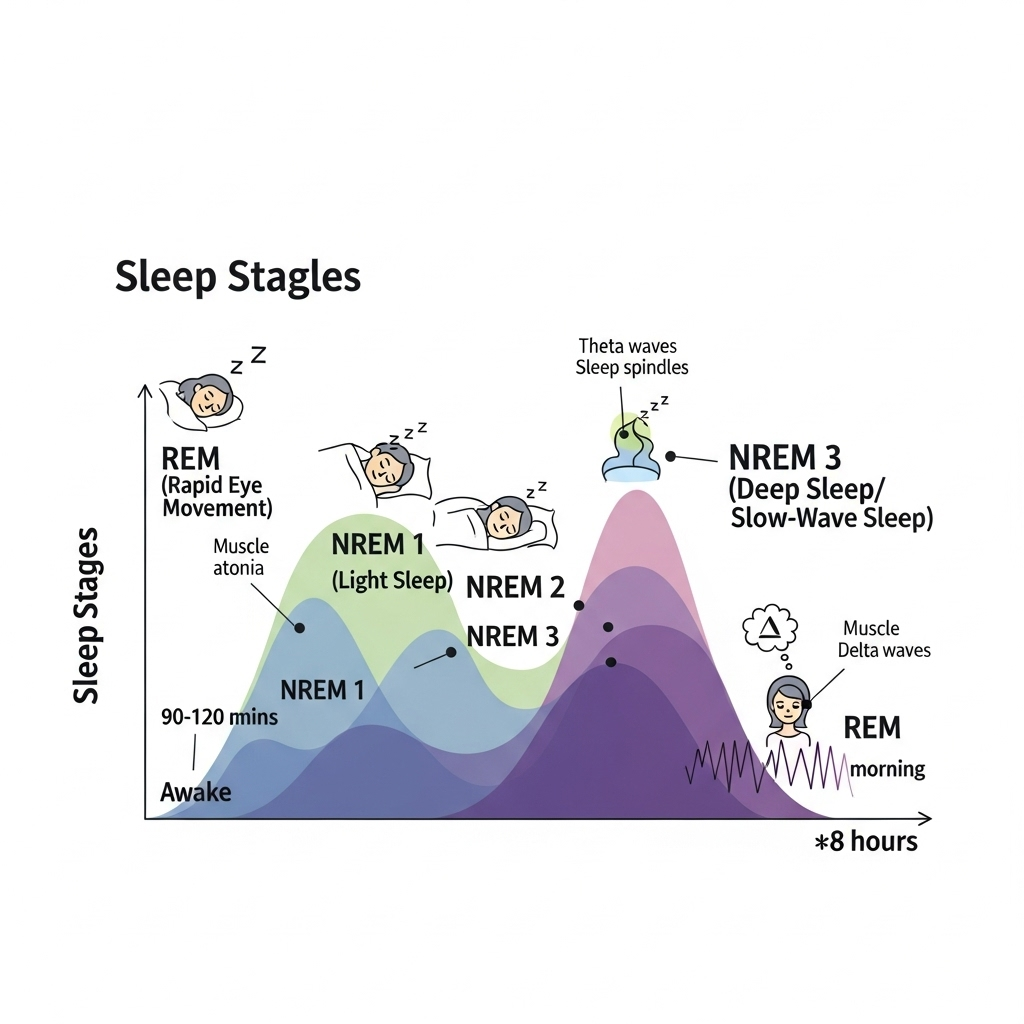
The Science Behind Sleep Cycles
Sleep is not one uniform state. Instead, it cycles through several stages, each with a unique function:
- Stage 1 (Light Sleep):Transition from wakefulness. Your muscles relax, and brain activity slows.
- Stage 2 (Deeper Light Sleep):Heart rate and breathing regulate, body temperature drops.
- Stage 3 (Deep Sleep):The body focuses on repair, tissue growth, and immune function.
- REM Sleep (Rapid Eye Movement):The stage of dreaming, memory consolidation, and emotional processing.
Each full cycle lasts about 90 minutes, and adults need 4–6 cycles per night for optimal rest. Missing out on deep or REM sleep can leave you exhausted, even if you’ve been in bed for eight hours.
Common Sleep Disruptors
Several lifestyle and environmental factors can prevent you from getting restorative sleep:
- Blue Light from Screens:Phones, TVs, and computers emit blue light that suppresses melatonin, your sleep hormone.
- Caffeine & Alcohol:Caffeine blocks sleep-inducing chemicals in the brain, while alcohol fragments deep sleep.
- Stress & Anxiety:Racing thoughts can keep your mind active when it should be winding down.
- Irregular Sleep Schedule:Going to bed at different times confuses your body’s circadian rhythm.
- Poor Sleep Environment:Noise, uncomfortable bedding, or too much light disrupt natural sleep cycles.
Recognizing these factors is the first step toward fixing them.
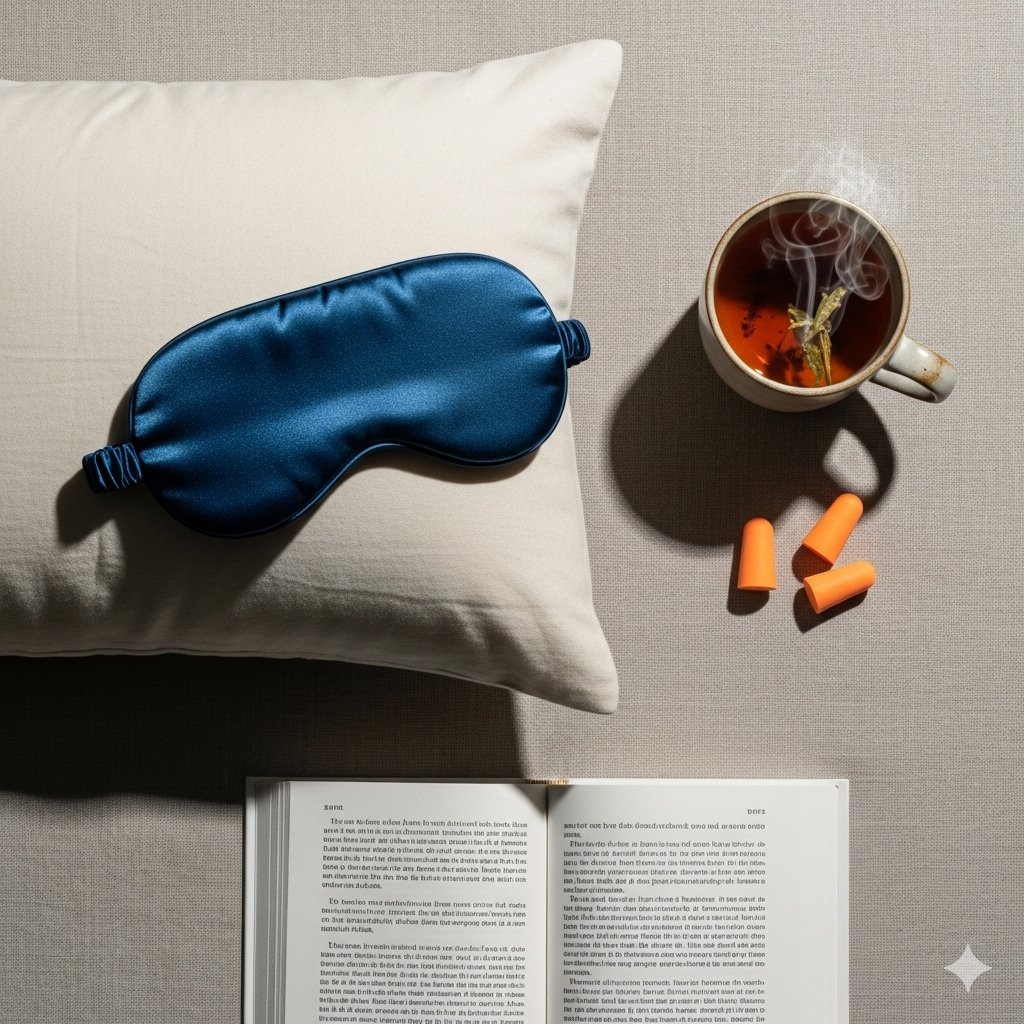
Proven Tips for Better Sleep Tonight
Improving sleep doesn’t always require medication. Science-backed strategies can make a difference immediately:
- Create a Consistent Sleep Schedule
Your body thrives on routine. Going to bed and waking up at the same time every day—even on weekends—strengthens your circadian rhythm and improves sleep quality.
- Optimize Your Bedroom Environment
- Keep the room cool(around 18–20°C or 65–68°F).
- Use blackout curtains or a sleep mask for darkness.
- Eliminate noisewith earplugs or a white noise machine.
- Invest in a comfortable mattress and pillowto support your spine.
A supportive mattress and pillow are game-changers for sleep. A memory foam pillow like this one Blairmore-Memory Foam Pillow helps maintain spinal alignment and reduces tossing and turning.
- Limit Screen Time Before Bed
Turn off screens at least 1 hour before bedtime. If that’s not possible, use blue-light-blocking glasses or enable night mode on devices.
- Watch What You Eat and Drink
- Avoid caffeine after 2 p.m.
- Limit alcohol close to bedtime.
- Skip heavy meals late at night—opt for a light snack if you’re hungry.
- Build a Relaxing Bedtime Routine
Train your brain to associate certain activities with winding down. Examples:
- Reading a book
- Light stretching or yoga
- Taking a warm bath
- Practicing deep breathing or meditation
If you can’t avoid screens at night, blue light blocking glasses Roshfort Money Heist Professor Eyeglass can help protect your melatonin levels and make falling asleep easier
- Get More Natural Light During the Day
Exposure to daylight regulates your circadian rhythm. Aim for at least 30 minutes of sunlight exposure, preferably in the morning.
- Exercise Regularly (But Not Too Late)
Regular physical activity improves sleep, but intense workouts right before bed can increase alertness. Try to work out for at least three hours before going to bed.
- Manage Stress Effectively
Journaling, mindfulness meditation, or progressive muscle relaxation can reduce stress and prepare your mind for rest.
If you live in a noisy environment, consider a white noise machine HoMedics sound machine to create a calm and consistent sound environment for deeper sleep
When to Seek Professional Help
If you’ve tried improving your sleep but still feel chronically tired, you may be dealing with a sleep disorder such as:
- Insomnia(difficulty falling or staying asleep)
- Sleep Apnea(breathing interruptions during sleep)
- Restless Leg Syndrome(uncomfortable leg sensations that disrupt rest)
- Narcolepsy(sudden daytime sleep attacks)
In such cases, consulting a sleep specialist is essential. Medical interventions, sleep studies, or therapy may be necessary.
Long-Term Benefits of Quality Sleep
Getting good sleep doesn’t just make you feel better the next day—it has long-term benefits for overall health and longevity:
- Strengthened immune system
- Better weight management
- Improved mood stability
- Reduced risk of chronic diseases
- Enhanced memory and cognitive function
Simply put: better sleep equals a better life.
The science of sleep shows us that rest is not a passive luxury—it’s an active biological process crucial for health, performance, and well-being. By making small, science-backed changes to your daily habits, you can dramatically improve your sleep starting tonight.
So tonight, instead of reaching for your phone one last time, dim the lights, unplug, and give your body the gift of deep, restorative rest. Your mind and body will thank you in the morning.

